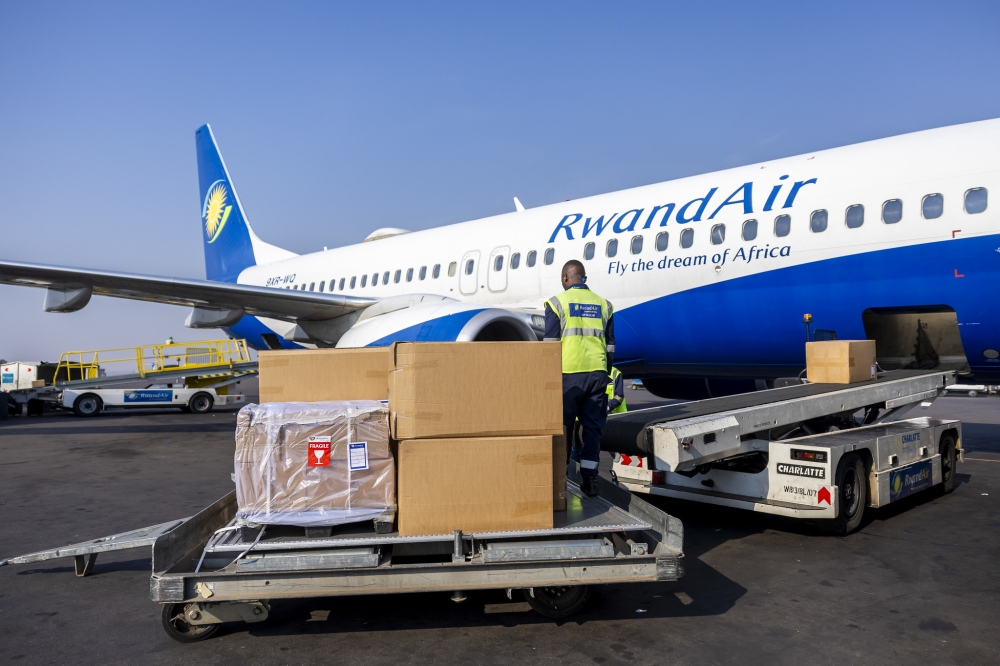

The government will no longer require export licenses, except when required by the importing country, in a bid to improve the business climate and boost the economic growth of small and medium enterprises (SMEs), according to new reforms announced by the Ministry of Trade and Industry.
An export license is issued by states to authorize the export of specific goods in specific quantities to regional and international destinations.
It ensures that exports comply with legal standards and international agreements.
ALSO READ: Top five destinations for Rwandan exports named
The reforms also include a shift in the handling of import permits, which will now be required for high-risk products such as pharmaceuticals, among others.
Speaking to The New Times in an exclusive interview, Prudence Sebahizi, the Minister of Trade and Industry, confirmed the development, pointing out that "It (export licenses) were creating unnecessary documentation, delays and costs for products to be exported or imported and thus becoming a non-tariff barrier.”


ALSO READ: What listing of SMEs on local bourse means for the market
He added: "Exporters were saying that it was delaying their businesses, especially for those that were not initially complying with export requirements (missing quality documents: like Clinical outcome Assessments.”
While export licenses help regulate goods that could have a significant impact on national security, foreign policy, and economic stability, others have turned into non-tariff barriers.
"Their removal will improve Rwanda’s business environment and allow more exports to take place,” Sebahizi added.
Competitiveness
Small and Medium Enterprises (SMEs) account for 98 percent of all businesses in Rwanda and contribute 60 percent to the GDP and 70 percent to formal and informal employment, according to Jean Bosco Kalisa, an economist based in Kigali, who also doubles as the Vice President at the Rwanda Council of SMEs.
ALSO READ: SMEs solving youth unemployment in Rwanda
"This is why the Council of SMEs was established in order to address the daunting challenges facing this important and sometimes neglected segment of businesses in Rwanda.”
The waiver, according to Kalisa, is " a big deal and constitutes a broader vision of Rwanda to remain competitive across the continent by streamlining and easing the rules and regulations governing businesses, especially SMEs,” he said, adding that regulatory measures should not be more trade-restrictive than necessary.
"Scrapping those export and import licenses is intended to stimulate the growth of SMEs so that they are part of global and regional businesses. It is also part of Rwanda's Doing Business agenda, where the government is nurturing entrepreneurship.”
The new reforms
The decision to waive off export licenses is part of wider reforms announced by the Ministry of Trade and Industry as part of the efforts to simplify trade processes and foster economic growth.
Under the new reforms, quality and safety licenses and permits issued by regulatory bodies, including the Rwanda Food and Drug Authority, Rwanda Inspectorate, Competition and Consumer Protection Authority, and Rwanda Standards Board, will now be valid for five years.
Minister Sebahizi maintained that these licenses will be renewable upon compliance with regulatory standards, although those related to the import of pharmaceuticals, vaccines, and medical devices are excluded from the new terms.
He explained that vigilance stands out as the main reason to exclude high-risk products from the new terms.
"For instance, Food items due to safety concerns, construction materials due to their structural requirements, electrical items due to their fire safety concerns, chemicals due to environmental concerns, personal hygiene products due to their potential to contaminate users, lubricants due to their potential to cause road traffic accidents if not well controlled,” Sebahizi reiterated.
By and large, Sebahizi maintained that the change is expected to reduce regulatory hurdles and expedite the import process for low-risk goods.
Also waived entirely are the service fees for SMEs to support domestic industries.
For larger enterprises, service fees have been capped at $71.46 (Rwf100,000) payable to the National Treasury through the Rwanda Standards Board account.


